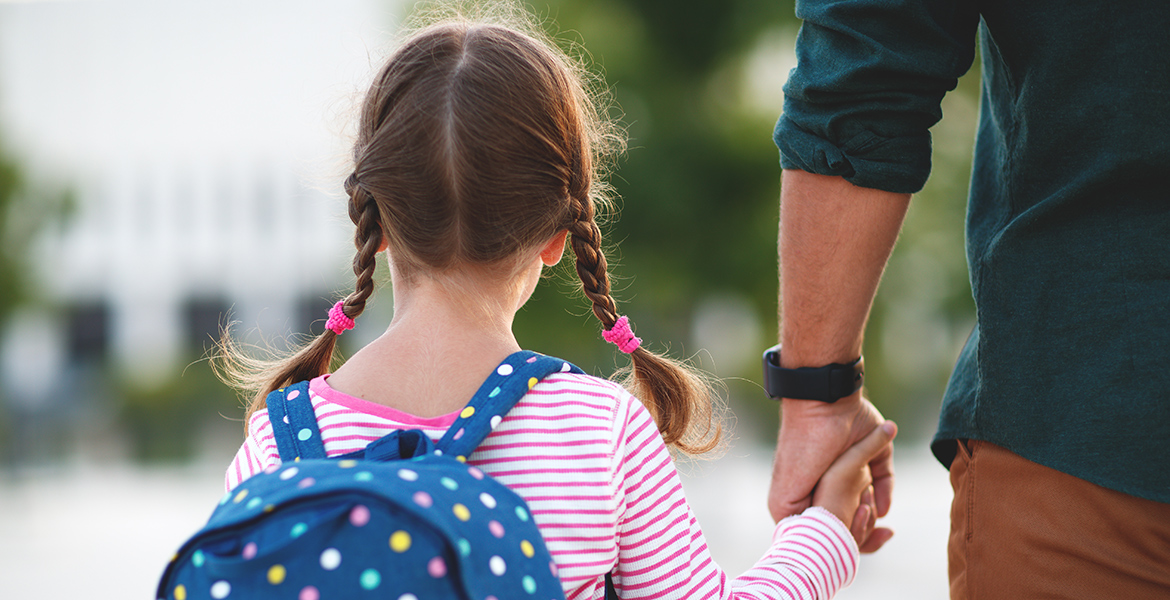
Despite pandemic, Co-Parenting for Resilience families persevere
Monday, November 23, 2020
The global coronavirus pandemic brought many challenges to families, especially divorced families with children. While Oklahoma State University researchers expected to see increased reports of stress, wellbeing largely remained stable for families participating in the Co-Parenting for Resilience course offered at OSU.
Co-Parenting for Resilience is a court-mandated program facilitated by OSU to help Oklahoma families transition through the life-altering conditions of divorce. Dr. Ronald Cox Jr., George Kaiser Family Foundation Endowed Chair in Child and Family Resilience and Community Engagement and associate director of the Center for Family Resilience, said researchers believe Co-Parenting for Resilience lessons prepared families to overcome another life-altering experience: coronavirus.
“Our program reduces stress and parental conflict while increasing collaboration and parental hope,” Cox said. “It seems those lessons were strong enough effects that even when COVID hit, there were no significant increases in conflict.”
Co-Parenting for Resilience was established to combat troubling statistics related to divorce. According to one study by Dr. Paul Amato, 40% of the U.S. population is expected to divorce at least once. Additionally, E. Mavis Hetherington and John Kelly report 25% of children in divorced families develop a mental health disorder within five years of the divorce in their book, “For Better or For Worse: Divorce Reconsidered”.
“Cooperative Extension developed a program to help parents recognize some of the pitfalls they may encounter, behaviors they may do even unwittingly, that could harm their children,” Cox said.
Past research has already demonstrated Co-Parenting for Resilience’s success, but when researchers surveyed more than 500 Co-Parenting for Resilience graduates, they expected coronavirus stresses to decrease Co-Parenting for Resilience’s positive effects. Instead, Ben Jessell, an OSU marriage and family master’s student and contributor to the study, observed parents actually reported family resiliency. Rather than observing increases in parents’ stress levels, stress levels remained stable throughout the pandemic.
“Their children were already struggling enough with not being able to go to school or see friends,” Jessell said. “The parents in our study said they didn’t want to add any more stress by having any problems like bickering or not cooperating with their coparent.”
Creative coping strategies such as video calling when children were in COVID quarantine at a coparent’s home, using cancelled events to spend quality time with their children and reaching out to religious communities helped them maintain a supportive home environment. Cox added while stable stress levels surprised researchers, family resiliency is a key theme of the Co-Parenting for Resilience course.
“In a typical divorce, co-parents are pulling for their own rights and seeking to have equal time with their child,” Cox said. “During the pandemic, though, parents rose above that and strove to do what was best for their child. That’s exactly what the Co-Parenting for Resilience course trains them to do.”
Even as traditional support systems changed, Dr. Matt Brosi, Marriage and Family Therapy program director and Masonic Chair for Interdisciplinary Research, said parents rose to the challenge. Even court systems closed at the height of the pandemic, removing the opportunity to arbitrate disputes over child custody.
“People often tell us they wish they had the Co-Parenting for Resilience course when they got married because it teaches them to focus on something much greater than themselves,” Brosi said. “I think COVID just shone a big spotlight on that process because it impacted every Oklahoma family, and parents had to be resilient.”
The Co-Parenting for Resilience course is delivered through Cooperative Extension in more than 50 Oklahoma counties to roughly 3,500 participants annually in both English and Spanish. Katey Masri, Co-Parenting for Resilience project coordinator, led efforts to accommodate social distancing requirements by making the course virtual, and also sends a monthly newsletter to all Co-Parenting for Resilience graduates with additional parenting resources.
“People get married, and when they have children, there is no or class for that,” Masri said. “It is just learned through experience and what your support system has taught you. This course is full of so much valuable information I want others to know.”
The Co-Parenting for Resilience course is one of many resources within the OSU Department of Human Development and Family Science (HDFS). Faculty and staff in the Center for Family Resilience translate research into outreach events and conferences, and faculty and graduate students in the Center for Family Services provide the OSU and Stillwater communities high-quality, low-cost marriage and family and other resources. For Cox, HDFS outreach, research and coursework are essential.
“Family relationships are at the heart of individual community, and societal wellbeing,” Cox said. “The course helps families be resilient in adverse circumstances, so they can navigate stormy waters when they present themselves.”
MEDIA CONTACT: Brittany Bowman | 405-744-9347 | brittany.bowman@okstate.edu
